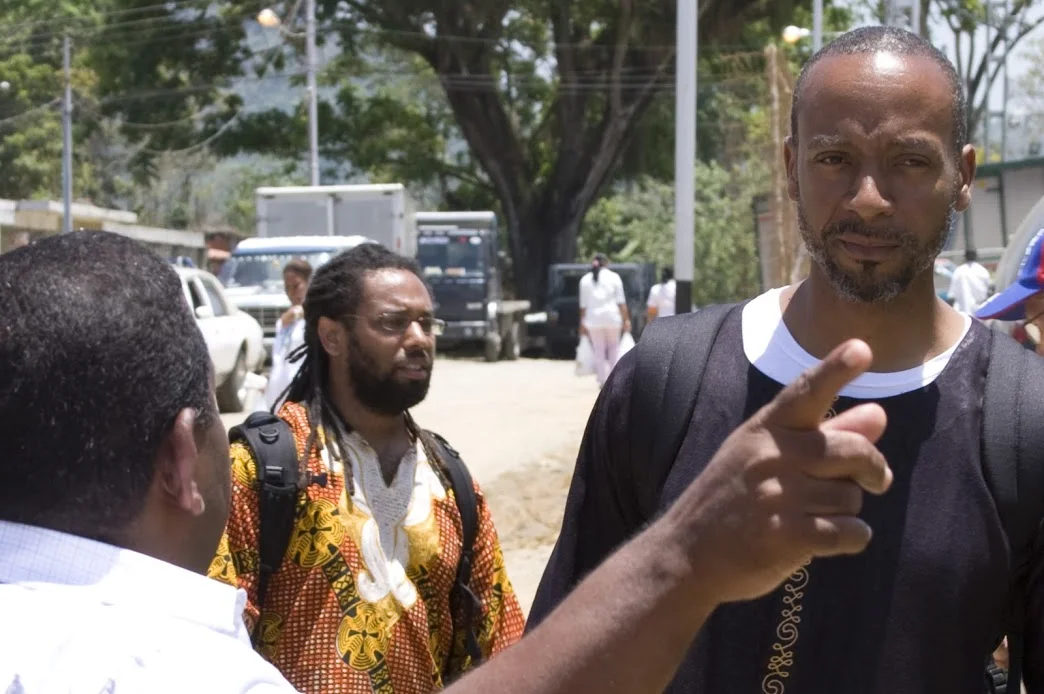Dr. Charles Denton Johnson
Associate Professor of History | Chair, Department of History
North Carolina Central University
Dr. Charles Denton Johnson is an Associate Professor of History and Chair of the Department of History at North Carolina Central University (NCCU), where he is recognized as a senior academic leader with a sustained record of advancing student success, strengthening academic programs, stewarding resources, and building community-engaged partnerships at a comprehensive public HBCU. Appointed Chair in 2023, Dr. Johnson provides strategic leadership for academic planning, curriculum oversight, faculty and staff supervision, budgeting, assessment, facilities coordination, and external engagement within one of the nation’s most productive departments for the education of African American historians.
Under his leadership, the Department of History has sustained its position as the leading producer of African American B.A., M.A., and Ph.D. recipients within the University of North Carolina System over the past decade. Dr. Johnson oversees a complex academic unit that includes undergraduate and graduate degree programs, public history initiatives, digital humanities infrastructure, and interdisciplinary offerings. He manages a seven-figure operating budget, has doubled the department’s foundation account in two years, and has helped raise more than $100,000 in philanthropic support as chair to fund scholarships, student travel, programming, and high-impact learning experiences.
Dr. Johnson returned to NCCU, his alma mater, in 2015 to direct the university’s Public History Program, where he played a central role in reshaping the department’s pedagogical vision and expanding its national visibility. During his tenure as director, he developed interdisciplinary curricula, strengthened experiential learning, and built institutional infrastructure to support digital humanities, oral history, and community-engaged scholarship. These efforts positioned public history as a signature strength of the department and a model for engaged scholarship across campus.
A significant dimension of Dr. Johnson’s leadership has involved facilities and infrastructure planning. He currently serves as building superintendent for the historic Edmonds Classroom Building, home to the departments of History and Political Science and the Sociology program. In this role, he is an active member of a cross-functional task force working with Facilities Management, senior academic leadership, and an external contractor to renovate and redesign the building. His contributions have emphasized balancing preservation with modernization, prioritizing upgrades to core infrastructure such as plumbing, cooling systems, boilers, and electrical capacity, while also advocating for contemporary teaching environments that incorporate updated instructional technology, interactive displays, and increased natural light. Many of his recommendations have been incorporated into the final renovation plans, reinforcing his capacity to align facilities investment with academic priorities and student success.
Beyond campus, Dr. Johnson is an internationally recognized public historian whose scholarship and leadership have enhanced institutional visibility and public trust. He served as Lead Historian and Co-Curator of America’s Voices Against Apartheid, a major international exhibition examining American solidarity with the South African anti-apartheid movement. The exhibition debuted at the Apartheid Museum in Johannesburg in 2023 and later appeared at the Kennedy Center’s Hall of Nations in Washington, D.C. These projects required complex collaboration, fundraising, and institutional representation, further demonstrating his capacity to lead large-scale, public-facing academic initiatives.
Dr. Johnson has secured more than $210,000 in external funding to support student success initiatives, public history exhibitions, oral history projects, and curricular innovation. He has served as Principal Investigator or collaborating scholar on projects funded by the American Council of Learned Societies, the Duke Endowment, the Mellon Foundation, and other national funders. His mentorship has helped guide students into competitive doctoral programs at institutions such as Brown University, Columbia University, Indiana University, and UNC–Chapel Hill.
An expert in African Diaspora, African American, and Public History, Dr. Johnson’s research focuses on twentieth-century transnational Black anti-colonial movements and African American community history, with particular emphasis on Black Durham. He is also a leader in oral history practice, having directed numerous initiatives that center marginalized voices and engage students in ethical, community-based research.
Dr. Johnson is at the forefront of innovation in the digital humanities and emerging technologies. He is a member of the 2024–2026 Responsible AI Cohort at the National Humanities Center and is co-developing the course AI and the African Diaspora in collaboration with colleagues at Johnson C. Smith University. This work bridges Africana Studies, history, and computer science to explore artificial intelligence as a tool for cultural preservation, equity, and inclusive knowledge production.
Dr. Johnson holds a B.A. in Marketing from Morehouse College, an M.A. in African History from North Carolina Central University, and a Ph.D. in African Diaspora and Public History from Howard University. He has received multiple awards for excellence in teaching and research and is listed in Who’s Who in America. He currently serves on the National Board of Directors of the National Council on Public History and remains actively engaged in national and regional professional organizations.
At the core of Dr. Johnson’s work is a commitment to academic leadership that is mission-driven, student-centered, and publicly engaged. Through strategic administration, faculty mentorship, community partnerships, and scholarly leadership, he continues to advance institutional excellence while preparing students for meaningful careers, civic engagement, and lifelong learning.


